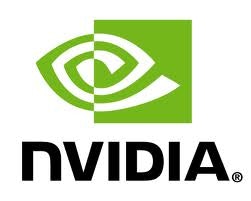Manufacturer of graphics processors for computers and “wannabe maker” of mobile processors NVIDA Corporation (NASDAQ:NVDA) impressed the Street yet again with solid fourth-quarter results. The company delivered a solid year-over-year jump in revenue and earnings; it improved its GPU business and market share considerably, and expects mobile chips to drive its growth in the future. But, it’s the last part regarding the future that’s the most worrisome.
NVIDIA Corporation (NASDAQ:NVDA)’s guidance for the current quarter came in way behind consensus estimates. You don’t expect a company which harbors great mobile ambitions to guide for a paltry 1.6% revenue jump from last year. But, it doesn’t come as a surprise to me that NVIDIA guided for just $940 million in revenue at mid-point, while the Street expected $1.07 billion.
A reality check
It was something just waiting to happen. NVIDIA guided lower due to two reasons — 1. Lower GPU sales, and 2. Lower sales of Tegra 3 due to launch of Tegra 4. It won’t be surprising if the chipmaker is handicapped by these reasons in the future as well, since NVIDIA leads a market which is shrinking and is an also-ran in a market which is growing.
There’s no doubt that sales of GPUs grew in the previous quarter, driven by strong sales of Tesla and Kepler. It is leading the pack in notebook and supercomputer GPU sales, and is looking to take GPUs to the next level through its GRID initiative. But, while NVIDIA might harp all it can about its achievements over the past year, the outlook for the ongoing quarter is the stark reality it has to face.
A growing market share in traditional computing devices, notebooks and supercomputers is undoubtedly a positive, but the fact that NVIDIA lowered its outlook due to decline in PC shipments tells us that it’s the king in a market which isn’t growing. Quite evidently, PC sales are being chopped down by tablets and this isn’t something new. Few might argue that tablets aren’t good enough to replace PCs just yet, but if that was the case, sales of computers wouldn’t have been falling at such consistent rates.
Tablet fort under attack
This is clearly a threat for NVIDIA, as has been the case for quite some time now. But, it is also an opportunity. NVIDIA can turn the tormentors of its traditional business into catalysts and has made some headway by capturing second place in the tablet processor market with 17% share. But, the going won’t be great even here as well. The tablet market is dominated by Apple Inc. (NASDAQ:AAPL) at 43.6%, followed by Samsung at 15% and Amazon.com, Inc. (NASDAQ:AMZN) at 11.5%, according to IDC.
The problem for NVIDIA is that I don’t see any of these manufacturers using the Tegra processor, and this makes things a bit complicated. Market leader Apple uses its own custom chips across its devices, effectively washing away NVIDIA’s ambition of dominating the market to a large extent. The Cupertino-based behemoth has witnessed solid growth in sales of iPads, selling 48% more iPads in the previous quarter, and NVIDIA can’t do much to tap on that growth yet.
Second-placed Samsung also uses its own Exynos processors in its devices, while Amazon went for Texas Instruments Incorporated (NASDAQ:TXN)’ OMAP processor in the latest Kindle Fire HD. The only saving grace for NVIDIA was Google Inc (NASDAQ:GOOG)’s Nexus 7 tablet, which used the Tegra 3 processor, but rumors suggest that the spot will be taken up by QUALCOMM, Inc. (NASDAQ:QCOM) in the next iteration of the successful tablet.
Will Qualcomm snap the Tegra?
Pacific Crest analyst Michael McConnell is of the opinion that competitive pricing and integration of the 3G/4G modem on the Snapdragon should help Qualcomm unseat NVIDIA from the heart of the next Nexus 7. And this is the very reason why Qualcomm enjoys a significant lead over NVIDIA. While NVIDIA has finally woken up to integrating a modem with the Tegra now, Qualcomm has been doing so from much before and that too in an aggressive manner.
No doubt that NVIDIA expects the LTE-integrated processor market to grow at a terrific pace this year, but in reality it is far behind Qualcomm. When Qualcomm launched its latest batch of Snapdragons, it already had more than fifty design wins in the bag while it seems that the Tegra 4 is finding it difficult to sell itself.
Thus, if NVIDIA loses out on the next Nexus 7, it might see its tablet processor market share decline since other non-Apple tablet leaders probably aren’t looking at NVIDIA at the heart of their devices. As far as smartphones are concerned, the lesser we speak about them the better since what applies to the tablet market mirrors into smartphones for NVIDIA.
The bottom line
Analysts at Needham, who downgraded the stock to a “hold” after results, summed up NVIDIA’s woes perfectly as they don’t see much Tegra growth and invasion of Qualcomm into NVIDIA’s tablet space. Moreover, it’s been one year since I first pointed out concerns about NVIDIA’s business, and those concerns stand multiplied today.
The stock has lost almost 23% in the past one year, which vindicates my opinions apart from hitting home the fact that NVIDIA faced an uphill task then and faces a much more difficult mobile future now.
The article Is NVIDIA About to Lose Its Tablet Kingdom? originally appeared on Fool.com and is written by Harsh Chauhan.
Copyright © 1995 – 2013 The Motley Fool, LLC. All rights reserved. The Motley Fool has a disclosure policy.






